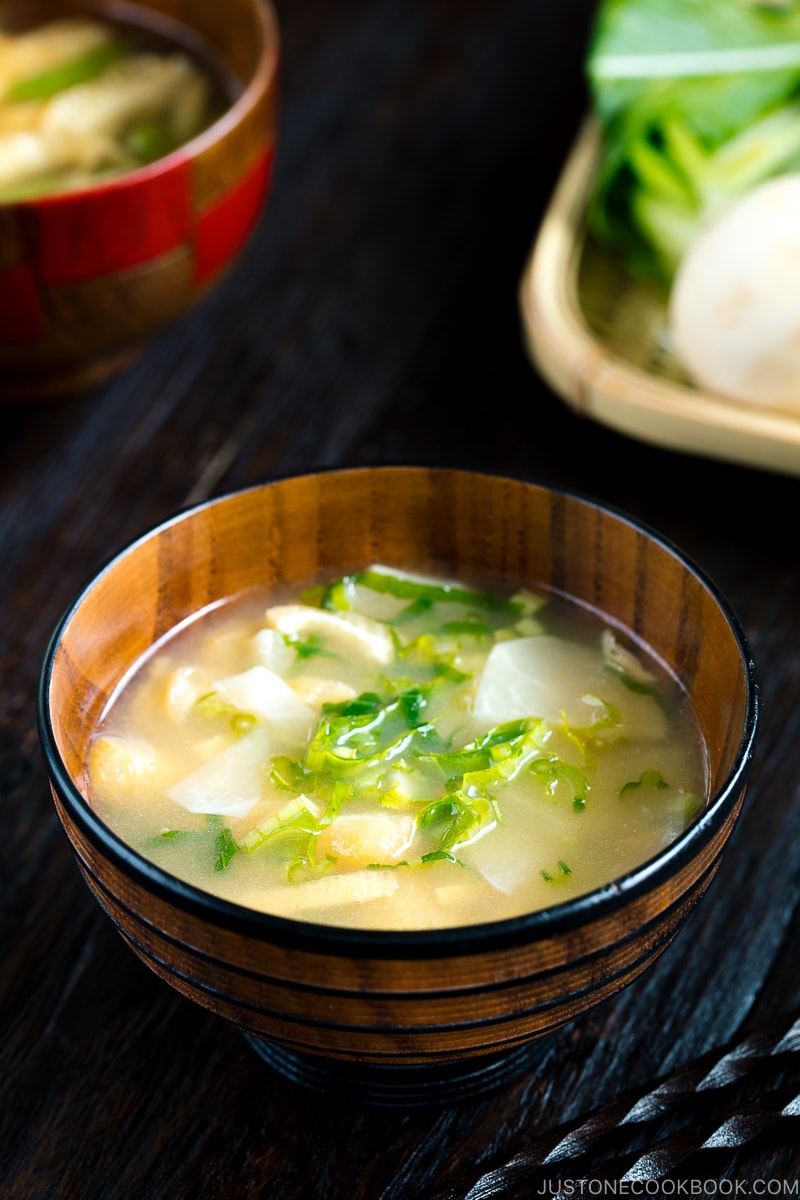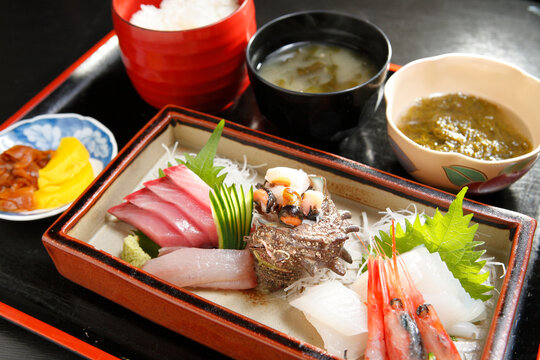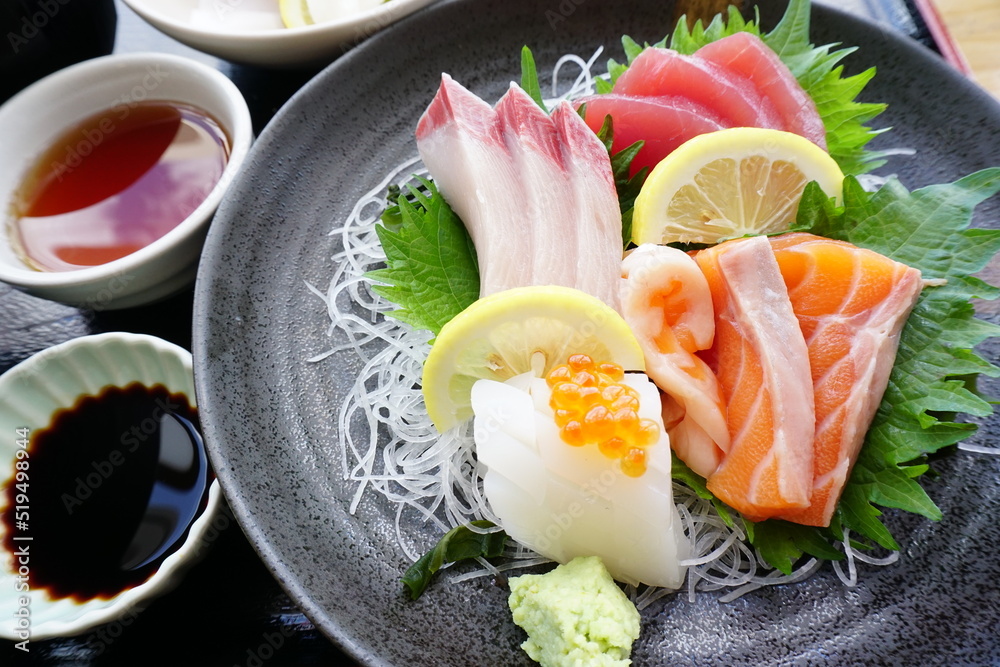What is
刺身定食?
刺身定食 is a traditional Japanese dish consisting of fresh, thinly sliced raw fish served with rice, miso soup, pickled vegetables, and sometimes a small side salad. The fresh quality of the fish is paramount, and it is often served with soy sauce and wasabi for added flavor.
Origins & History
刺身定食 originated from the traditional Japanese cuisine, where fresh fish was a staple food for coastal communities. The practice of eating raw fish dates back to ancient times in Japan, but the modern concept of a complete meal served with rice and side dishes developed during the Edo period (1603-1868).
Taste & Texture
刺身定食 has a delicate and fresh flavor profile, highlighting the natural taste of the raw fish. The combination with soy sauce adds a savory umami note, while wasabi gives a kick of heat, balanced by the comforting taste of rice and soup.
Ingredients

刺身
Thinly sliced raw fish, which may include salmon, tuna, yellowtail, or other varieties depending on availability and season.

ご飯 (Gohan)
Steamed white rice, which serves as a staple and base for the meal.

味噌汁 (Miso Soup)
A traditional Japanese soup made from miso paste, usually containing ingredients like tofu, seaweed, and green onions.

漬物 (Tsukemono)
Variety of pickled vegetables that add tanginess and crunch to the meal.

わさび (Wasabi)
A pungent green paste made from the wasabi root, used as a condiment for the raw fish.

しょうゆ (Soy Sauce)
A salty sauce made from fermented soybeans, used for dipping the sashimi.
This item may contain the following allergens:
Fish
Soy

Images may not reflect the actual item.










